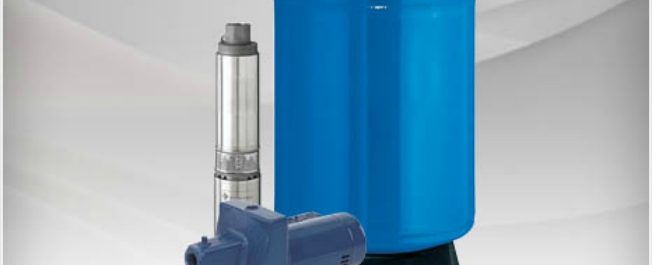California has some of the most complex water laws in the country. These laws, rules, and regulations are designed to protect the state’s groundwater resources, ensure that all water users receive a fair share of the available supply, and promote the sustainable use of this vital resource.
Understanding California’s Water Laws
California’s water laws are primarily based on two main pieces of legislation: the California Water Code and the Sustainable Groundwater Management Act (SGMA). Collectively, these laws provide a framework for managing the state’s water resources, including groundwater supplies.
Water is a precious resource in California, and the state’s water laws reflect the importance of ensuring its sustainable use. The laws are designed to balance the needs of various stakeholders, including farmers, urban residents, and the environment, while also addressing the challenges posed by climate change and population growth.
The California Water Code
The California Water Code outlines the state’s water rights system and provides the legal foundation for regulating water usage and managing water resources. The Code takes a comprehensive approach to water management, addressing everything from the licensing of water suppliers to groundwater basin adjudications.
One of the key features of the Water Code is its recognition of the public trust doctrine, which holds that the state has a duty to protect and manage its water resources for the benefit of all Californians. This principle is reflected in the Code’s provisions for protecting instream flows, which are essential for the health of fish and other aquatic species.
Groundwater Management Laws
Groundwater management is a critical component of California’s water laws. The state has experienced severe groundwater depletion in recent years due to persistent droughts and increased consumption. To address this issue, several laws have been enacted to ensure the sustainable management of groundwater resources.
For example, the 2002 Groundwater Management Act requires local agencies to adopt groundwater management plans that include measures to prevent overdraft and protect water quality. The law also provides for the establishment of groundwater sustainability agencies, which have the authority to regulate groundwater use and impose fees to fund conservation efforts.
Sustainable Groundwater Management Act (SGMA)
SGMA, passed in 2014, is the most significant groundwater regulation in California. It requires that local agencies develop and implement plans to sustainably manage their groundwater resources, including establishing sustainable yield and avoiding undesirable results. These plans must be based on sound science and input from stakeholders.
SGMA represents a major shift in California’s approach to groundwater management, which has historically been characterized by a lack of regulation and oversight. The law has prompted many local agencies to take a more proactive approach to groundwater management, including the development of innovative conservation strategies and the implementation of new technologies.
Overall, California’s water laws are a reflection of the state’s commitment to sustainable water use and management. While there are certainly challenges to be addressed, the laws provide a framework for ensuring that the state’s water resources are protected and managed in a way that benefits all Californians.
The Permitting Process for Well Drilling
Drilling a well can be a complex process, and obtaining a permit is just one of the many steps involved. If you’re planning to drill a well in California, it’s important to understand the permitting process and the various requirements and restrictions that may apply.
Obtaining a Well Drilling Permit
Before you can begin drilling a well, you’ll need to obtain a permit from the local authority. The specific requirements for obtaining a permit can vary depending on a number of factors, including the location, depth, and intended use of the well.
To obtain a well drilling permit, you’ll typically need to complete an application form and submit it to the local authority. The application will require detailed information on the well’s proposed location, depth, size, and purpose. You may also need to provide information on the types of materials and equipment you’ll be using, as well as any potential environmental impacts of the well.
Requirements and Restrictions
In addition to the application form, you may need to comply with several other requirements and restrictions. These can include environmental impact assessments, zoning laws, and construction standards.
For example, depending on the location of the well, you may need to comply with zoning laws that restrict the use of certain types of land for well drilling. You may also need to meet certain construction standards to ensure that the well is built safely and effectively.
Environmental Impact Assessments
Environmental impact assessments are a critical part of the permitting process for well drilling. These assessments evaluate the potential environmental impacts of the well, such as effects on surface water quality, groundwater quality, and wildlife habitats. They can also identify any necessary mitigation measures.
During the environmental impact assessment process, you’ll work with a team of experts to evaluate the potential impacts of the well and identify any steps that can be taken to minimize those impacts. This may include measures such as using low-impact drilling techniques, implementing erosion control measures, or minimizing the use of chemicals and other potentially harmful materials.
Overall, obtaining a permit for well drilling can be a complex process, but it’s an important step in ensuring that your well is built safely and effectively. By working closely with local authorities and environmental experts, you can help ensure that your well is designed to meet your needs while minimizing its impact on the environment.
Impacts of Water Laws on Well Drilling
The complex web of water laws and regulations in California can have significant impacts on well drilling operations. Some of the most notable impacts include:
Protecting Groundwater Resources
Water management laws aim to protect the state’s groundwater resources, which can limit the amount of water that can be extracted from wells. Groundwater is a vital resource for Californians, providing around 40% of the state’s water supply in an average year. The Sustainable Groundwater Management Act (SGMA) was signed into law in 2014 to address the overuse of groundwater in California. SGMA requires local agencies to develop and implement groundwater sustainability plans that ensure the long-term reliability of groundwater supplies. As a result, well drilling operations may be subject to additional regulations and restrictions to ensure that groundwater resources are protected.
Balancing Water Rights and Usage
California’s water laws aim to balance the water rights of all users, including agricultural, urban, and environmental interests. This can lead to restrictions on how much water can be used for specific purposes, including well drilling. For example, during droughts, the State Water Resources Control Board may issue curtailment orders that restrict water diversions from rivers and streams to protect fish and wildlife. These orders can affect well drilling operations that rely on surface water sources.
Ensuring Sustainable Water Supply
Water laws are designed to promote the sustainable use of water resources, which includes ensuring an adequate water supply for future generations. This can limit the amount of water that can be extracted from wells in certain areas. For example, in areas where groundwater levels are declining, the state may impose pumping restrictions to ensure that the groundwater basin is not overdrawn. In addition, the state may require well drillers to obtain permits and conduct environmental reviews to ensure that their operations do not harm the environment or other water users.
In conclusion, water laws play a critical role in regulating well drilling operations in California. By protecting groundwater resources, balancing water rights and usage, and ensuring a sustainable water supply, these laws help to ensure that Californians have access to reliable and safe drinking water now and in the future.
Challenges Faced by Well Drillers
Well drillers face numerous challenges when operating in California’s complex regulatory environment. Some of the most significant challenges include:
Navigating Complex Regulations
California’s water laws and regulations can be challenging to navigate, requiring significant knowledge and expertise. Well drillers may need to work with legal and technical professionals to ensure compliance.
For example, well drillers must obtain permits from the state and local agencies before drilling a well. These permits require detailed information about the location, depth, and construction of the well. Well drillers must also comply with regulations related to well abandonment, well destruction, and well sealing.
Furthermore, the regulations governing well drilling in California are constantly changing. Well drillers must stay up-to-date with the latest regulations and adjust their operations accordingly.
Adapting to Changing Water Laws
Water laws in California are constantly evolving, with changes in regulations and legal requirements. Well drillers need to stay abreast of these changes and adapt their operations to remain compliant.
For example, in response to the ongoing drought in California, the state has implemented new regulations to limit water usage. Well drillers must ensure that their operations comply with these regulations, which may include restrictions on the amount of water that can be pumped from a well.
Well drillers must also be aware of changes in water quality regulations. In some cases, newly discovered contaminants may require additional testing and treatment of well water before it can be used for drinking or irrigation.
Addressing Environmental Concerns
Environmental concerns, such as water quality, can have a significant impact on well drilling operations. Well drillers may need to implement mitigation measures to address these concerns and ensure compliance with environmental regulations.
For example, if a well is located near a sensitive environmental area, such as a wetland or wildlife habitat, well drillers may need to take extra precautions to prevent contamination and protect the environment. This may include installing additional casing to prevent contaminants from entering the well, or using specialized drilling techniques to minimize disturbance to the surrounding area.
Well drillers must also be aware of the potential for groundwater contamination from nearby sources, such as agricultural or industrial operations. If contamination is detected, well drillers may need to take additional measures to protect the health and safety of nearby residents and the environment.
Conclusion
California’s water laws are complex and multifaceted, designed to protect and manage the state’s valuable water resources. For well drillers, these laws can have significant impacts on their operations. By understanding these laws and the permitting process, well drillers can navigate the regulatory environment and ensure compliance, while also promoting the sustainable use of California’s vital water resources.




